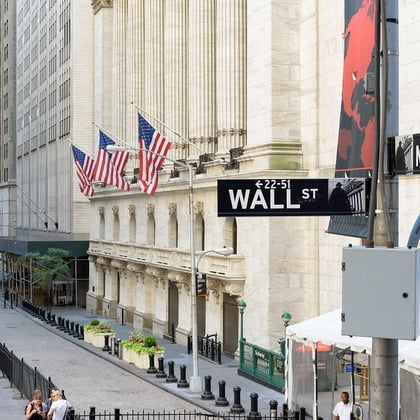What You Need to Know
- The finance industry is now grappling with a second year of attacks on ESG by key Republicans and state attorneys general.
- After a pandemic-fanned boom, the acronym collided with an energy crisis, leading to huge losses for funds shunning fossil fuels.
Bankers, money managers and other financial market participants are starting to loathe the label “ESG” — but they’re also sticking with the strategy, according to a Bloomberg survey.
About two-thirds of respondents in a survey of roughly 300 Bloomberg terminal users said the anti-ESG movement that started in the U.S. last year will force firms to stop using those three letters in conversations with clients.
However, they’ll continue to incorporate environmental, social and governance metrics in their business, they also said.

When it comes to “the three-letter acronym ‘ESG’ — people don’t want to talk about it as much because of the news flow from the U.S.,” said Alex Bibani, a senior portfolio manager at Allianz Global Investors in London. “But from an investment perspective and what we do internally, it has never been more important.”
The finance industry is now grappling with a second year of attacks on ESG by key members of the Republican Party, including threats of litigation from state attorneys general, as well as outright bans on the strategy in some U.S. states.
As recently as May, Florida Governor and presidential hopeful Ron DeSantis signed a sweeping anti-ESG bill he says targets the “woke” bias of the finance industry. And in June, BlackRock Inc. CEO Larry Fink said he doesn’t want to use the term “ESG” anymore, after it was “weaponized.”
While such attacks may end up shaping the nomenclature, they’re unlikely to change the finance industry’s approach in tackling some key components of ESG such as climate change, according to the Bloomberg survey.
Only 18% of respondents who identified themselves as using ESG in their work said the backlash against the label was stopping them from incorporating climate factors in their decision making. Instead, they pointed to climate data challenges as a bigger hurdle.
For ESG investors, 2023 has been filled with “big swings,” Coco Zhang, ESG researcher at ING Groep NV, and Padhraic Garvey, ING’s regional head of research for the Americas, said in a note. “But global sustainable finance remains in rude health,” they said. That includes “exceptional growth” in green issuance, which is among reasons to “get more upbeat” about the future.

The term ESG has only existed for about two decades after being created through a United Nations-led initiative. The goal was to come up with a framework that would persuade profit oriented financial firms to pay attention to the environment, to societal risks and issues of governance.
The construct was supposed to drive home the point that ignoring such risks and opportunities would ultimately lead to losses.








 August 14, 2023 at 01:41 PM
August 14, 2023 at 01:41 PM












 Copyright © 2024 ALM Global, LLC. All Rights Reserved.
Copyright © 2024 ALM Global, LLC. All Rights Reserved.